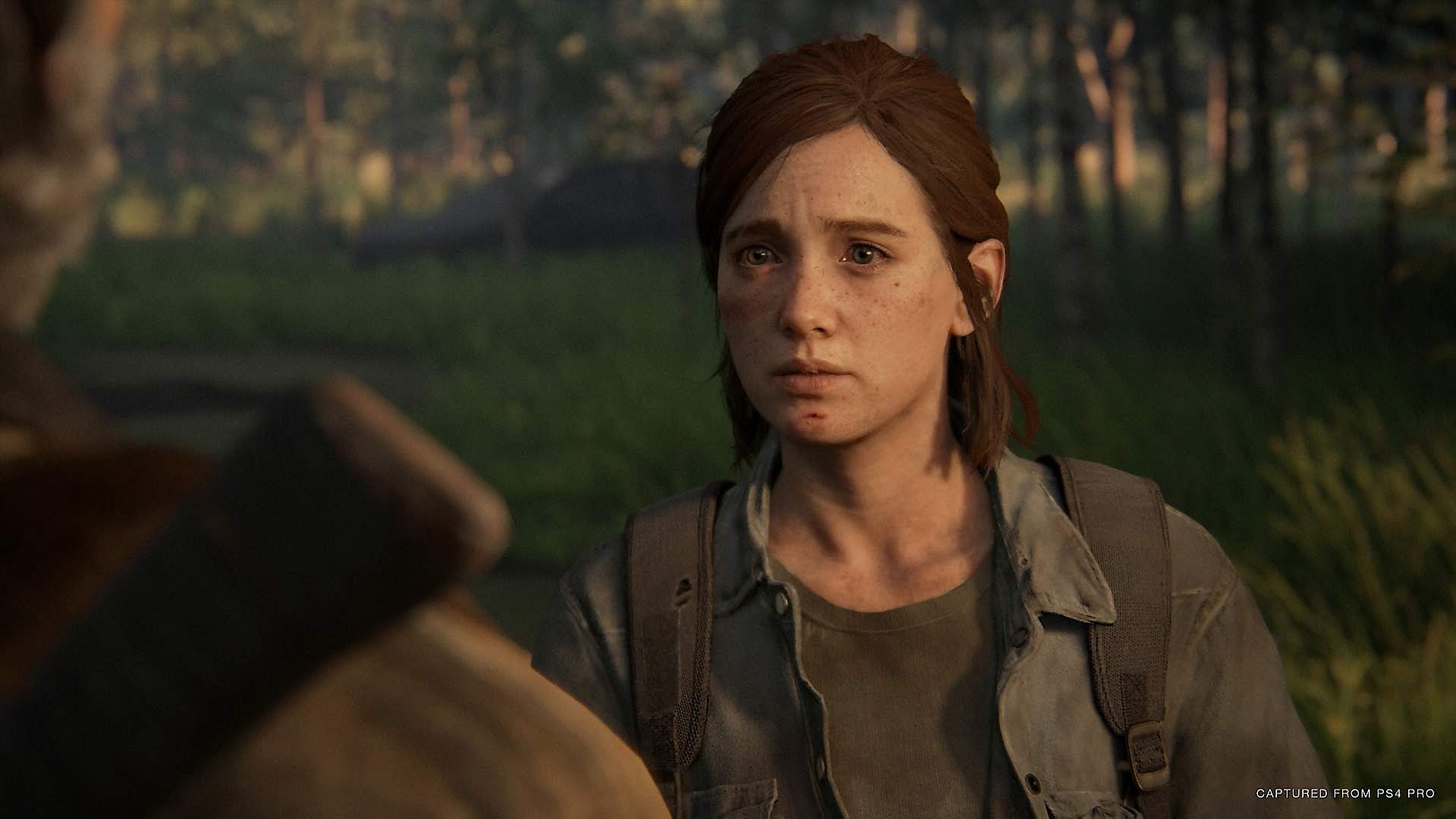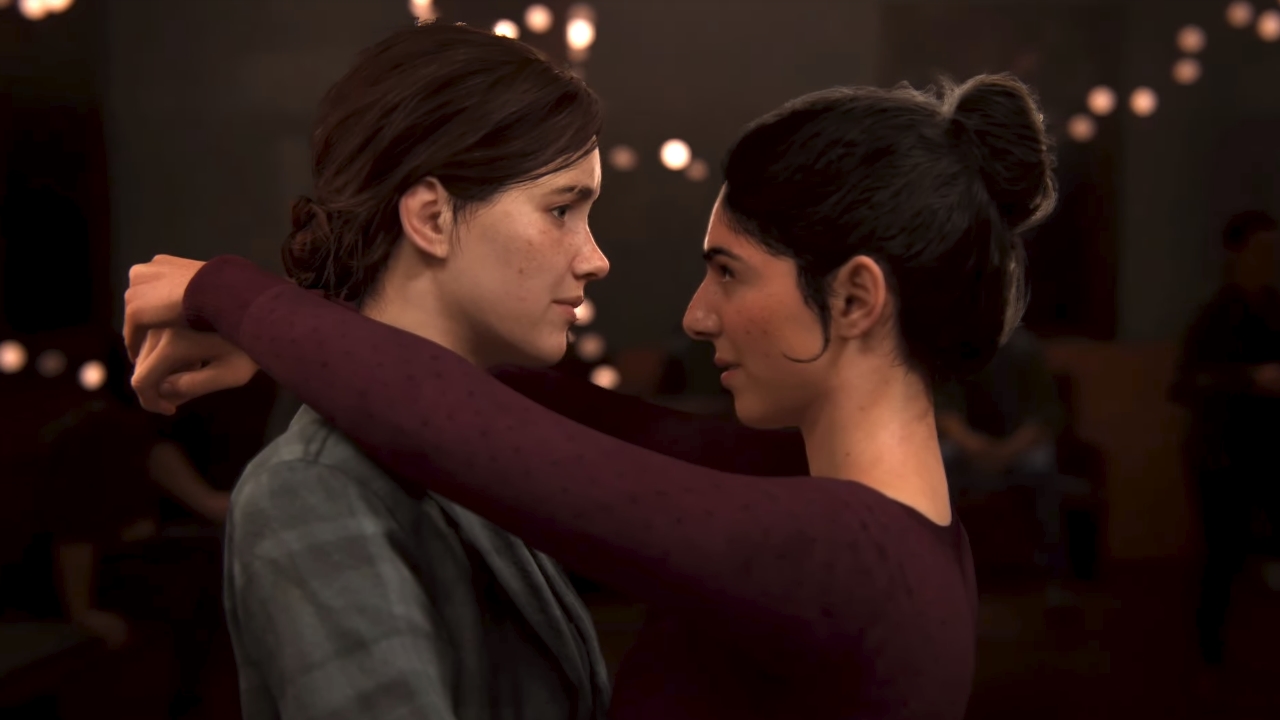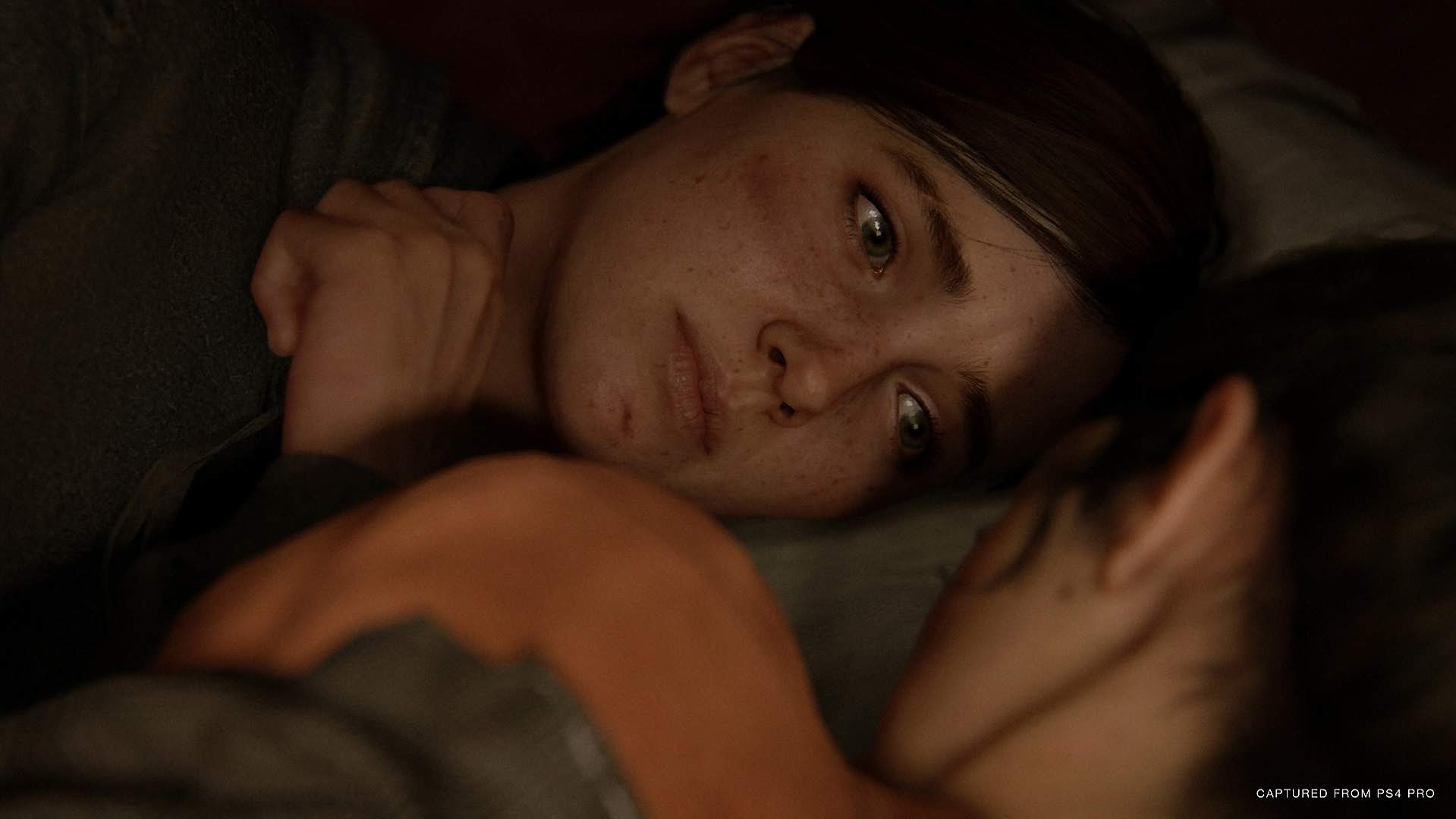LGBT+ representation in an ultraviolent dystopia: The Last of Us and budding identity
As The Last of Us 2 draws closer, it feels like the right time to look at the series' revolutionary approach to orientation

Navigating the maze of sexual orientation can toss up difficulties for any teenager, let alone one that also has to shoulder the responsibility of being the only hope humanity has left. Often, The Last of Us asks us to consider our capacity for brutality, lingering on questions of sacrifice and survival – of whether one individual is less valuable than hundreds of others. One of the most fascinating threads in The Last of Us comes not from untangling the existential, but in examining its character. Naughty Dog invests us in this world and the people that inhabit it by daring us to consider where they have come from and where they may go next.
For Ellie, we get to see what came before society's fall in The Last of Us: Left Behind. In the DLC, Naughty Dog invites us into Ellie's teenage life shortly before she meets Joel and the pair embark on their fateful journey to find the Fireflies. Left Behind served as a tender respite from the horrors that engulf The Last of Us, as it introduced Ellie’s friend, Riley, and presented players with a budding and respectful portrayal of queer love and self-discovery shared between two girls – even if it was cut short by an oncoming onslaught of those infected by the Cordyceps fungus that ravages society in the original game.
Left Behind not only takes the admirable step of establishing that an iconic character – a key protagonist in one of the best-selling and most beloved video games of all time – is gay but also helps to lay the foundations of the characterisation that comes to define Ellie through The Last of Us. The teenage survivalist is often stoic, determined not to allow anyone she cares about to succumb to infection, to such an extent that she will risk herself on behalf of others. This strive to protect the people she cares for – though they are few – is arguably borne of the guilt she carries over from being unable to save Riley.
Ellie's orientation, then, is firmly infused with her character even when it isn’t necessarily being depicted on-screen. Her formative years are coloured by a short-lived experience with queer love and immediate loss – something which she carries with her long after the events of Left Behind and drive her through her journey in The Last of Us. As she clings to the remnants of her relationship with Riley, Ellie honours her memory by growing into a saviour and protecting others where she ultimately could not protect Riley. Her identity is tied into her character, shaped by the sudden death of her first experience with a budding queer relationship, and this lays the groundwork for what is to come in the next chapter.
A new state of play

In The Last of Us, there may not be as much room to explore Ellie's burgeoning identity as there is in Left Behind, but that's not to say that her relationship to queerness is ignored in the rest of the story. In fact, in the first The Last of Us 2 gameplay – revealed back at E3 2018 – the very first cutscene shown introduced us to a much older Ellie, now on the verge of entering her twenties, engaged in a dance with another woman. Ellie is now a weary young woman, hardened from the experiences of her travels with Joel, and, this time, it looks as though her sexuality is set to serve as an essential focal point. Just a few minutes into the gameplay shown, Ellie shares a kiss with this other woman without a care in the world as to who's watching. It is a revolutionary move to make the very first slice of gameplay for such a highly anticipated sequel so explicitly gay and to suggest that identity will make up a fundamental part of the narrative this time round.
For a major first-party studio to choose to ground the first look at a game that the world has been waiting on for almost eight years in queerness indicates a major shift in just how important developers now consider representation to be. It is an unprecedented risk to take, especially when you stop to consider the various issues with homophobia that have dogged the industry before. Indeed when the gameplay first premiered, a flurry of homophobic gamers took to Twitter to denounce their attachment to the series, and to declare their fury at Neil Druckmann's supposed ''politicisation' of the story. For Naughty Dog to remain steadfast in the face of such reactions and continue to stress that Ellie’s identity will be a vital aspect of The Last of Us indicates just how important representing LGBT+ lives and experiences is becoming.

The Last of Us deserves to be considered one of the finest examples there is of LGBT+ representation in gaming – there are no throwaway comments that could simply be perceived as gay here, no characters that are just coded as queer and no clutching at straws for LGBT+ gamers. Where some other games may imply that their characters are queer, as is seen in the Tomb Raider reboot and its approach to the relationship between Lara Croft and her associate Sam, The Last of Us 2 makes the decision to place lesbian identity at the front and centre of the narrative by making it a vital aspect of Ellie's character. There is no room for interpretation here and there are no breadcrumbs for LGBT+ players to pick up in order to see themselves reflected in the game. It is both refreshing and reassuring to not have to read between subtextual lines just to see if you can find someone that reminds you of yourself as you pour hours and hours of your time into a story.
Sign up to the GamesRadar+ Newsletter
Weekly digests, tales from the communities you love, and more
Weaving queerness into the fabric of the story establishes The Last of Us as a leader of the pack for LGBT+ representation in the gaming world. While the option to romance NPCs of the same sex in recent RPG outings such as Assassin's Creed: Odyssey is a nice, inclusive touch, it can sometimes feel slightly tokenistic. Choosing to take your main character and make them gay – as The Last of us 2 looks certain to expand on – is not just a bold move; it's a radical statement. It says that queer characters shouldn't just be an option, they can and should be the beating heart of big stories. And I can’t wait to see how Ellie will balance ultraviolence, vengeance, and her blossoming identity in this new chapter.

Looking forward to playing Naughty Dog's latest? Here's how you can pre-order The Last of Us 2 ahead of its release this June.
Hannah Ryan started her time at GamesRadar+ as an intern, writing news and features for the site. However, Hannah is now a freelance digital programmer and trending news writer at CNN, contributing to the news programming and curating the day's breaking stories for the digital homepage. Hannah has a MA Magazine Journalism and has years of experience in broadcasting and production through her time working as a presenter for the Xpress radio station.


